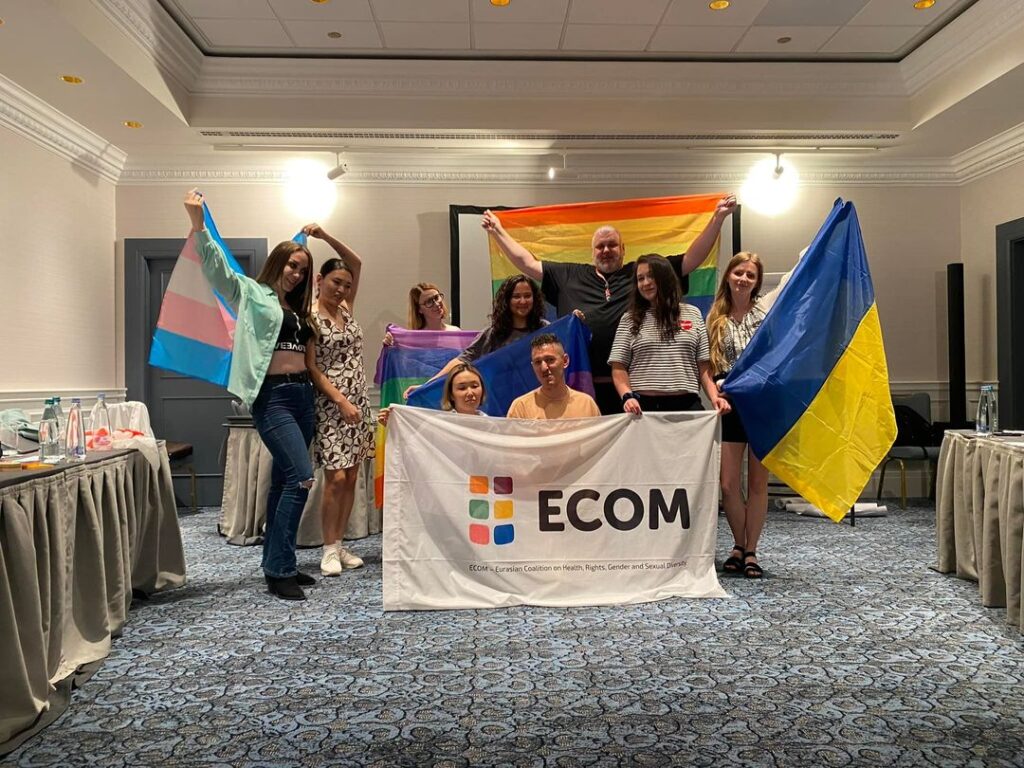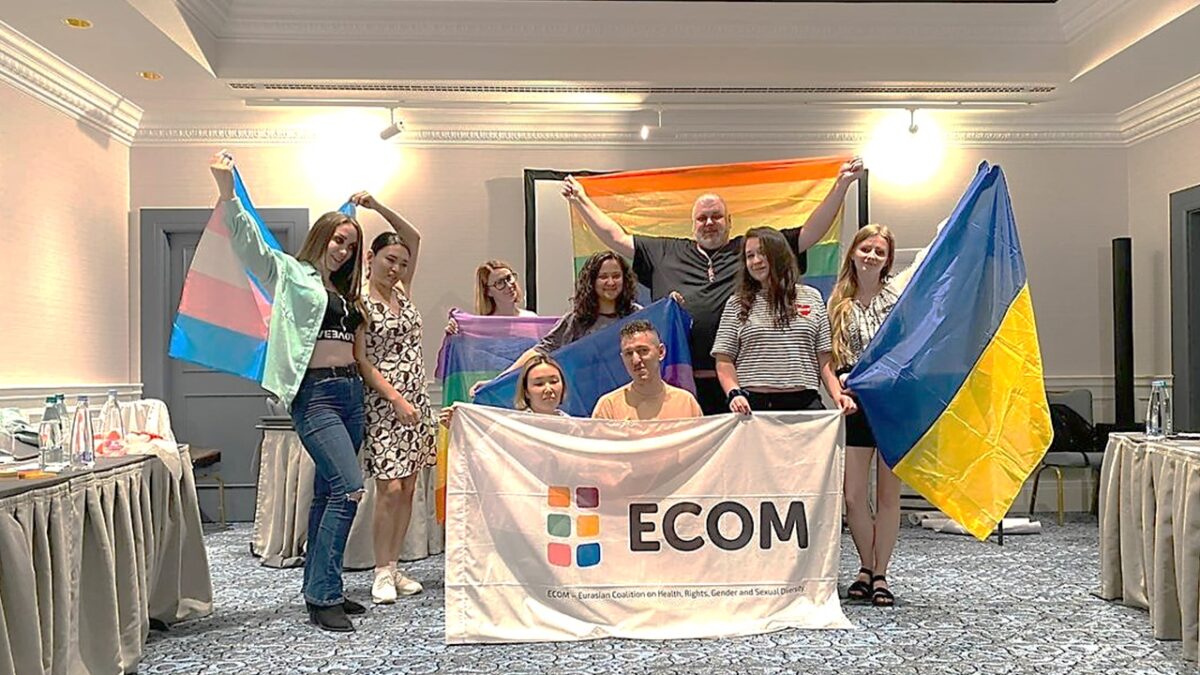At the end of June, a training session was held on monitoring and documenting human rights violations of LGBT people. ECOM was able to train 18 activists from 5 countries in the EECA region.
One of ECOM’s tools to achieve the goal of creating a favorable legal environment is to collect data on human rights violations of LGBT people in the region of Eastern Europe and Central Asia. Therefore, we continue to train more and more monitors in order to monitor human rights violations.

“This year, we started working together with the Alliance for Public Health: we started adding cases of human rights violations of LGBT people to the REAct online database. We conducted this training session as part of this activity. The participants took part in the training and identified monitoring objectives for each country. In the future, the information collected on violations will become a source for advocacy in the countries and in international mechanisms,” says Elvira Tilek, Human Rights Officer at ECOM.
During the training session, the participants learned how to collect evidence when monitoring and documenting human rights violations of LGBT people, how to systematize and classify human rights violations. The training session was based on the manual on monitoring and documenting human rights violations of LGBT people developed by ECOM.
The participants received theoretical and practical knowledge about monitoring and the process of documenting, got acquainted with the applied theory of collecting and documenting evidence, learned how to properly use photo and video evidence in their work.
Also, during the training, the following topics were discussed in detail: human rights, what is stigma and discrimination and the difference between them, the classification of human rights violations, the process of identifying violators and types of violations.In addition, the REAct database was presented to the participants as well as the mechanism of how to work with it.
REAct is a tool for documenting rights violation cases and monitoring the response to them. The participants learned how to conduct interviews with victims of rights violations, carefully collect complete information about each incident, and also took part in a discussion about methods of creating a monitoring network, about emotional burnout and shared their self-care methods with each other.

Read also:
ECOM: Manual on monitoring and documentation of LGBTQ human rights violations


